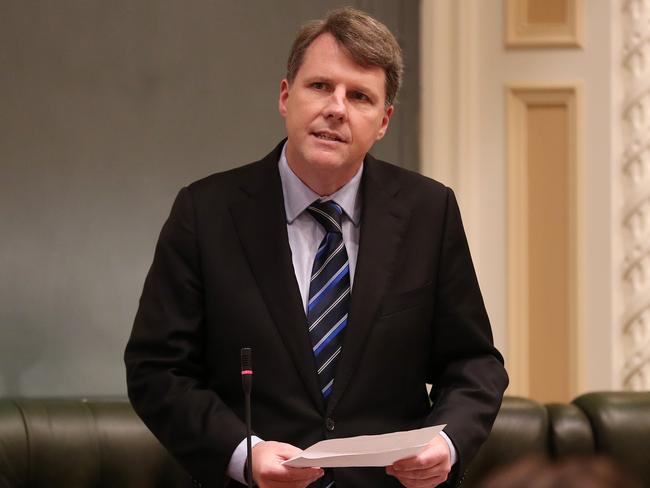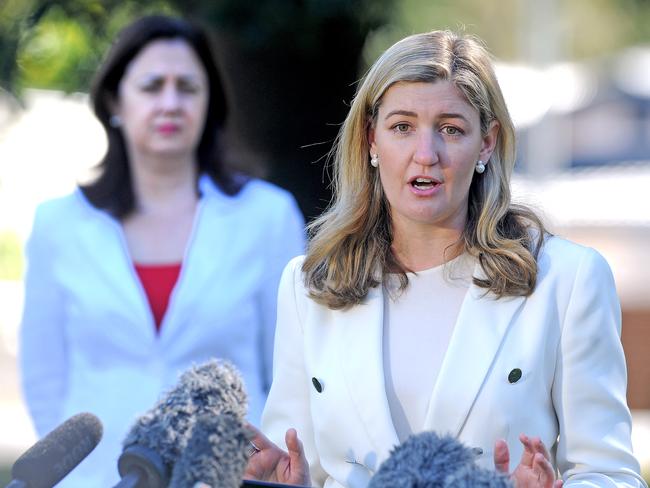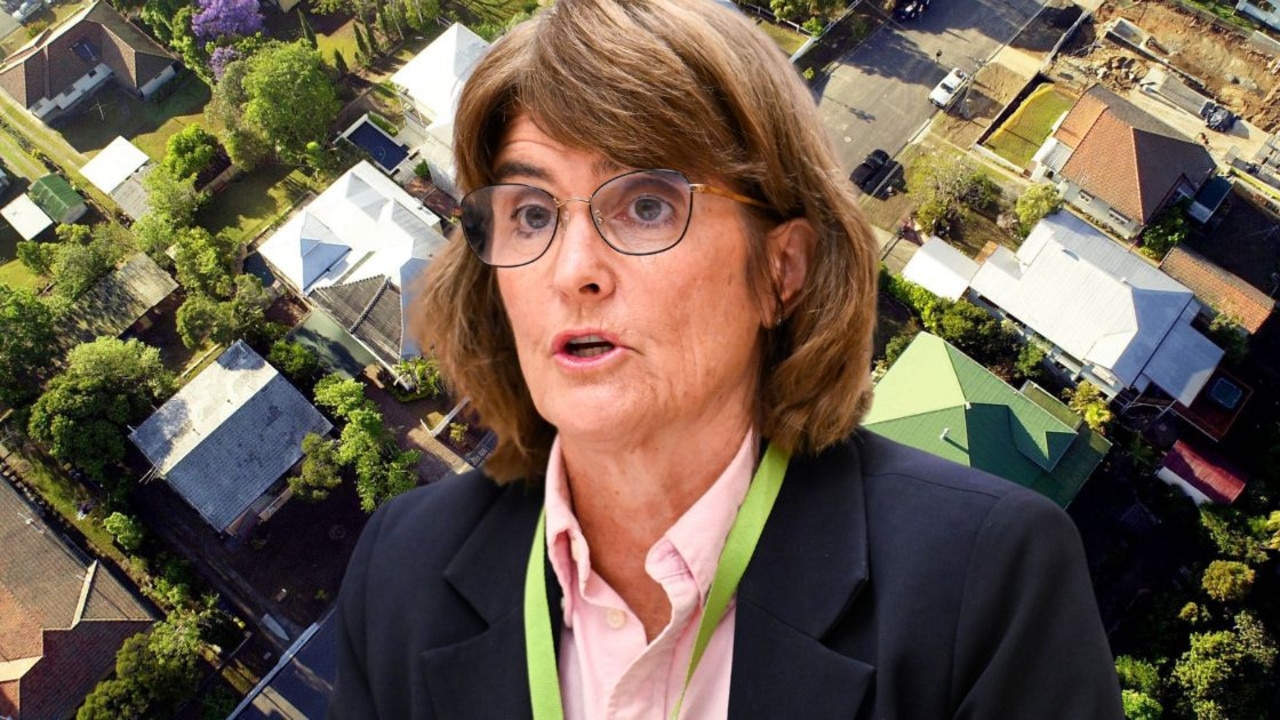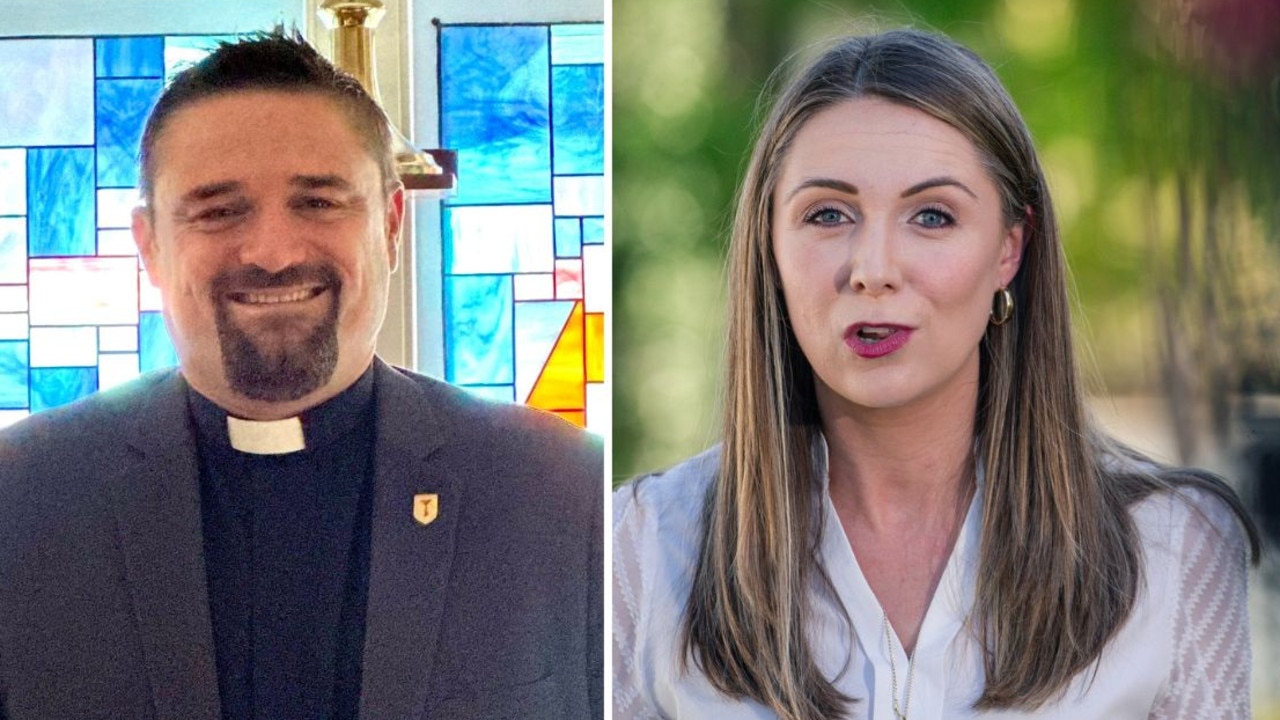Opinion: CCC turns a blind eye to serious misconduct claims
If allegations of torture, incitement to violence and malpractice in a state government integrity unit are not enough to warrant an investigation, what the hell is, wonders Des Houghton.
CM Insight
Don't miss out on the headlines from CM Insight. Followed categories will be added to My News.
The Crime and Corruption Commission told a whistleblower it would not investigate his allegations of corrupt conduct in the Education Department’s ethical standards unit, including the alleged cover-up of a child torture case.
Parliament heard the unit responsible for investigating integrity failures corruptly blocked the investigations into alleged torture by a teacher who also encouraged two teenage boys to settle their differences with a violent fistfight at a Gold Coast high school.
In a rare parliamentary “public interest disclosure” to Opposition education spokesman Dr Christian Rowan, the whistleblower accuses several of his superiors of fabricating evidence, malpractice, nepotism, bullying and other serious ethical breaches.
He is a seasoned police officer who has copious records including witness statements, emails, text messages and records of meetings.
Shamefully, the CCC didn’t even look at his evidence.
The whistleblower also gave Rowan a letter dated May 31 last year from CCC gatekeeper Marie Zitny dismissing his complaint “due to limited resources”.
Zitny, the director of the CCC review unit, added: “While the CCC appreciates your concerns, this is not a matter which meets the criteria for requiring investigation by the CCC. “Accordingly, the CCC does not intend to take the matter further.”
If allegations of torture, incitement to violence and malpractice in a State Government integrity unit are not enough to warrant an investigation, what the hell is? I hope famed corruption buster Tony Fitzgerald’s ears are burning.

Rowan was aghast.
“As the shadow minister for education I find it extraordinary that such a serious matter which relates to the welfare and safety of students was not considered important enough to be investigated,’’ he said.
Rowan said it was equally extraordinary and perplexing that detailed allegations against department chiefs were dismissed.
“These matters will continue to be pursued urgently,” he said.
The inexplicable CCC snub is another blow to the credibility of Premier Annastacia Palaszczuk who frequently says there is no need for a royal commission because the CCC does such a good job. It doesn’t. Palaszczuk also says the CCC is an ongoing royal commission. It isn’t.
Most complaints to the CCC go unanswered and Palaszczuk knows it. And whistleblowers suffer.
I had to reach for the smelling salts last week when I heard Palaszczuk tell Parliament: “Since the Fitzgerald inquiry, Queensland has had robust institutions to guard against corruption. One is the CCC. It is a standing royal commission in this state.”
If it is so robust, how come there so many reputable figures like outgoing Integrity Commissioner Nikola Stepanov and ousted State Archivist Mike Summerell can list a multitude of criminal and ethical breaches by the Palaszczuk government?
Figures show there have been 14,362 formal complaints of wrongdoing against the State Government to the CCC from 2017 to 2021. The figure does not include complaints against politicians or local councils.

It is, of course, impossible for the CCC to begin to investigate the 14,362 complaints.
The volume suggests to me that corruption is thriving behind the scenes with wrongdoers knowing they will most likely escape any punishment.
Most complaints are simply referred back for investigation to the very departments accused of wrongdoing in the first place.
There they go into a black hole and die. I know this because 72 per cent of all complaints are not resolved within the first 12 months.
Of all those 14,362 complaints, only five involved the Department of Education.
This astonishes me because it has 95,9000 staff and is the fourth-largest employer in Australia.
That is why a royal commission is urgently needed to mop up the many examples of misconduct which have been highlighted by The Courier-Mail and The Australian and my colleagues in the electronic media.
Palaszczuk was not alone in spinning the fairytale that the CCC was a “robust institution” ready to pounce on wrongdoers.
I thought I was listening to Goldilocks when Attorney-General Shannon Fentiman continued the Palaszczuk fairytale.
“The CCC is Queensland’s standing royal commission,” she gushed.
“It has all the powers of a royal commission. Legal protections for whistleblowers exist under the Public Disclosure Act.”

In my experience, the protection for whistleblowers exists only on paper. Retribution against those who speak out is not uncommon.
Complaints against whistleblowers are manufactured and backdated.
Public interest disclosures can take years to resolve and cost whistleblowers tens of thousands of dollars in legal fees.
When the Education Department whistleblower believed his superiors had crossed the line, he bravely requested “public interest disclosure” status within the department on June 4, 2021.
He didn’t hear back until August when he was told the department had outsourced his complaints to MinterEllison, an A-grade law firm.
On August 9 MinterEllison sent him a written request to answer a set of questions about his allegations.
The whistleblower dutifully provided his inquisitors with a 43-page statement with 92 attachments.
Outsourcing investigations seems to me like a clever political strategy.
Any advice subsequently given by law firms is privileged and not subject to Right to Information searches.
On November 24 the department formally rejected the whistleblower’s request for “public interest disclosure” status on his more serious complaints of maladministration and corrupt conduct.
Rowan told the House the Department of Education had covered up shocking criminal behaviour and punished two whistleblowers who spoke out about it.
Education Minister Grace also declined to comment – of course.





